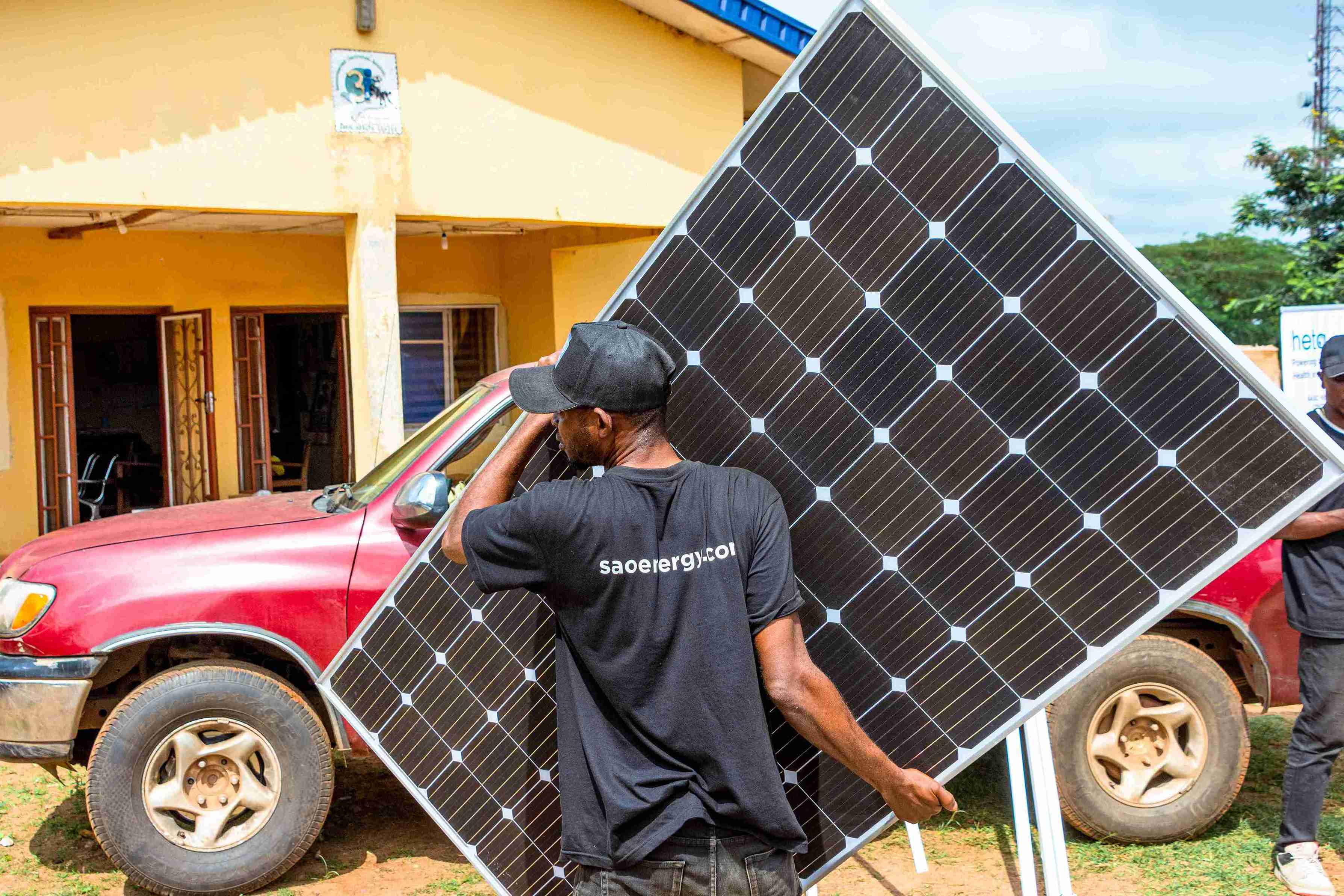In Nigeria, deploy clean and reliable power solutions on a “Energy-as-a-Service” model for rural healthcare centers, shops and households.

Project: Advancing Healthcare and Sustainability
Country & region/location: Nigeria, Ese Odo and Irele LGAs
Category: Energy & Health
Nigeria faces significant power challenges, poor healthcare services, and high infant and maternal mortality rates. In 2020, the maternal mortality rate was 1,047 per 100,000 births, and the infant mortality rate was 74 per 1,000 live births, according to UN reports. Recent figures show a decline to 512 maternal deaths per 100,000 births and 70 infant deaths per 1,000 live births, as corroborated by a SE4All report.
In Ondo State, Nigeria, six local government areas have been without electricity since 2014 after being disconnected from the national grid. Communities have endured a 14-year power outage, severely impacting areas like health facilities, businesses, and social well-being. Neo-natal and maternal mortality rates have been on the increase as kerosene lanterns and, sometimes, phone torches are used for nighttime deliveries.
With the primary goal of reducing preventable deaths caused by inadequate and unreliable power in primary healthcare centers in rural areas of Okitipupa, Ondo State, SAO Energy will ensure the deployment of clean and reliable power solutions – mesh-grid - on a “Energy-as-a-Service” model for 45 rural healthcare centers and 135 shop owners and households that are either too remote to be connected to a mini-grid or lack reliable power from the main grid. This project will be crucial in ensuring the availability of reliable power, thereby enhancing healthcare delivery and promoting sustainable improvements in maternal and child health. Beneficiaries in the targeted areas will experience better quality healthcare services and enhanced well-being.
Expected results:
- 45 PHCs equipped with clean electricity and essential laboratory equipment (centrifuge machines), enabling them to conduct basic medical tests and store vaccines for future use
- Increased operational efficiency of healthcare centers with stable power, improving healthcare delivery and services (15% reduction in neonatal and maternal mortality within 3 years)
- 135 shop owners/households benefit from the surplus energy generated by the health facilities
- 45 healthcare facilities and 135 shop owners/households operate more efficiently
- Support 206 nurses, 200 community extension healthcare workers, and 25 midwives in continuing their work with reliable power at the healthcare centers
- Train 3 local technicians on the installation, operation, and maintenance of the solar systems and 70% of all healthcare workers on the use and maintenance of appliances and equipment
- Improved job security and retention of community health workers and increased hours of operation for shop owners with access to clean energy for productive use and nighttime illumination
- Creation of local jobs through training and employment of technicians
- Reduced dependency on unreliable grid power or diesel generators


